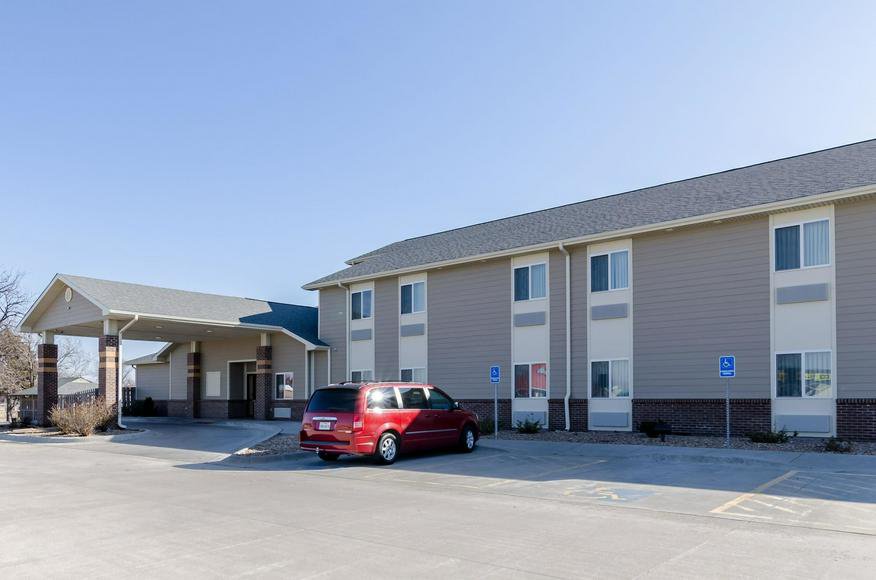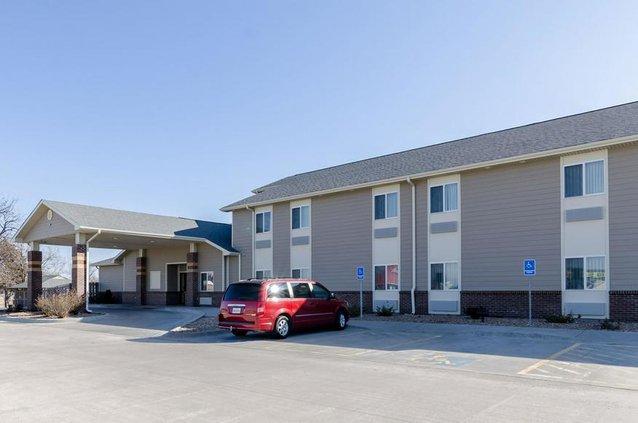HOISINGTON — At the Monday, Feb. 25, city council meeting, Hoisington City Manager Jonathan Mitchell shared a request from a group of local investors for assistance in marketing the Rodeway Inn, the city’s only full-service hotel. The council agreed by offering to extend the tax abatement period for that property an additional 10 years to a potential buyer, sweetening the deal for any potential buyer.
Nearly a year ago, Mitchell said, the investors had approached the city with a similar request, but the mood of the council at that time was to wait and see how efforts to market the property paid off, not closing the door to a future request.
Then, in May, 2018, the investors presented a request for a $10,000 Transient Guest Tax grant. Investors signing the request included Dr. David McMillon, Paula Manweiler, Keith Willborn and Jettie Zoller. They noted in their application that since the inception of the hotel, a total of $107,000 in transient guest tax dollars has been generated from the hotel.
According to a report in the May 17, 2018 edition of the Great Bend Tribune, at the May 14 Hoisington City Council meeting, the council approved the request.
McMillon stated at that time the hotel was experiencing a negative cash flow and the group was hoping to turn that around through a more aggressive marketing plan. They hoped to create promotional materials including brochures, postcards and a new sign for the Duck Blind bar, as well as to consult with social media and internet marketing experts, develop a website, and pursue media and state periodical advertising in the Kansas Travel Guide and other state tourism publications.
Mitchell also noted at that time the hotel was being marketed for sale, and asked for some assurance that the money, if granted, would be used for the purposes stated. Investors suggested, and the council agreed that if the hotel sold before the grant money was expended, any remaining dollars could pass with the hotel, with the express requirement it be spent only on marketing and promotional expenses.
Fast forward to Monday night. After nearly a year of aggressively marketing the property to no avail, the investors were concerned increasing property taxes were making an already tough situation potentially worse. Currently, they are receiving a 60 percent abatement, and paying $7,500 a year, Mitchell said. That rolls back to 40 percent for the next two years, and then the abatement period ends in 2021, he said.
Mitchell reminded the council what precipitated the building of the hotel back in 2010.
“A lot of civic minded people invested in this thing not expecting any sort of return,” he said. “They saw it as a community investment. They put it in just wanting to have a quality hotel here, and since that was built, we’ve gotten the transient guest tax dollars allowing us to support the Chamber, and do all kinds of other projects for the community, and that created five to 10 jobs at a time, we get the sales tax and utility revenue, and its a big part of our community.”
The project had not paid off quite as well as the investors had hoped it would, he added, but the city still has a quality hotel.
“Before the hotel was built, we had zero dollars in tax revenue coming from that place,” he said. “Now, we’re getting $7,500 in property taxes, which is way more than we got before.”
Discussion ensued. The consensus of the council was they preferred to do something rather than nothing. They eventually agreed they were open to offering to lock in the 60 percent abatement for the current investors while they market the property, and upon a buyer being found, for an additional five years, then dropping it down to 40 percent for five more years.










